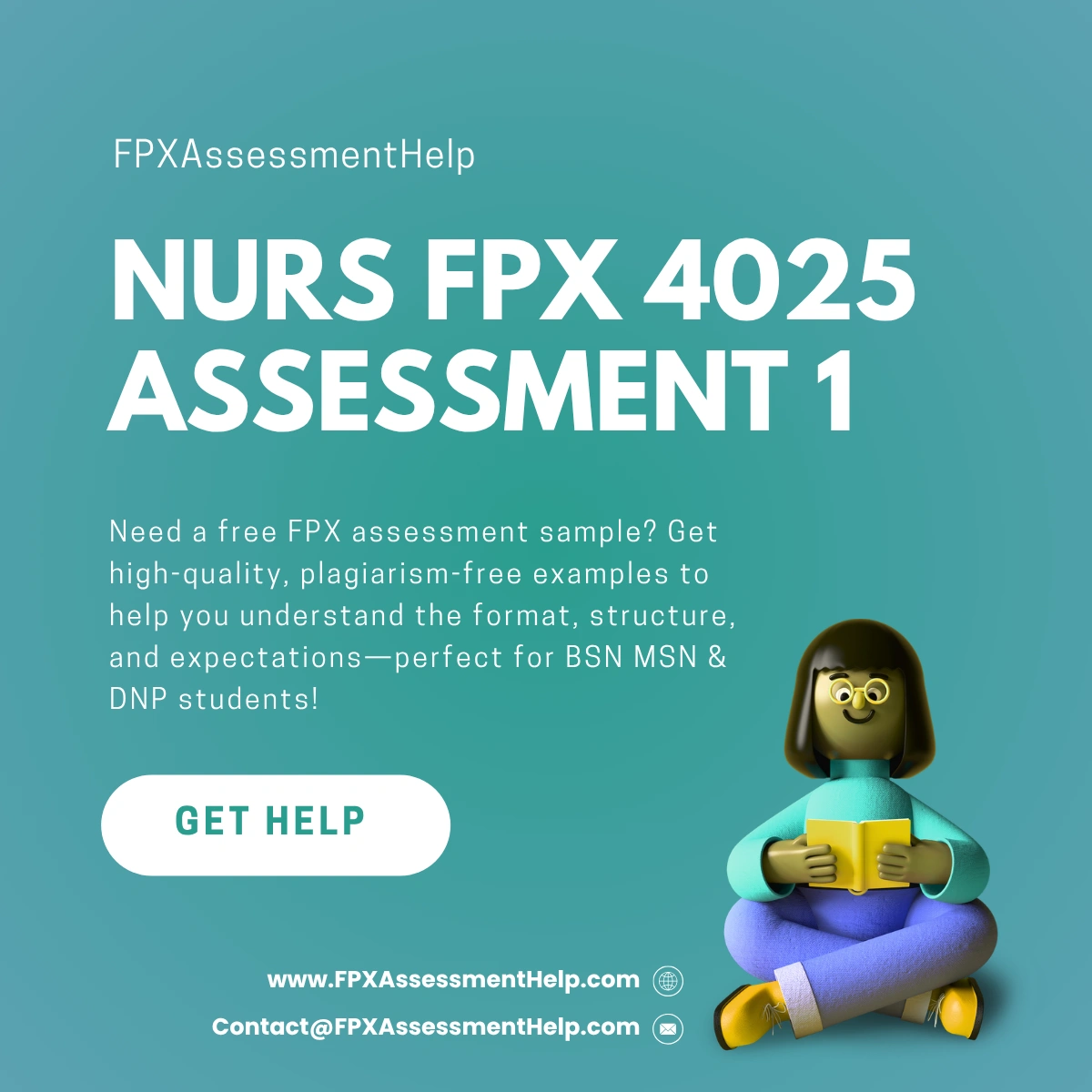NURS FPX 4025 Assessment 1 Analyzing a Research Paper
Student Name
Capella University
NURS-FPX4025 Research and Evidence-Based Decision Making
Prof. Name
Date
Analyzing a Research Paper
DOI: https://10.1056/NEJMoa2203094
Article Review
Type of Study
The research under review is a multicenter, parallel-group, double-blind, randomized, placebo-controlled clinical trial. It evaluated the effectiveness of acetazolamide in managing acute decompensated heart failure (ADHF) in patients experiencing volume overload. This design represents one of the most rigorous forms of clinical investigation, utilizing blinding and randomization to minimize bias and ensure valid comparisons between intervention and control groups. The study was carried out across multiple clinical centers, further improving the generalizability of its findings.
Level of Evidence
This clinical trial represents Level I evidence on the hierarchy of evidence pyramid, reflecting its status as a randomized controlled trial (RCT) with double-blinding and placebo use. Such trials are widely regarded as the most authoritative source of clinical evidence. Their design reduces bias through allocation concealment and blinding, while also improving internal validity. This particular trial featured a large cohort, objective endpoints, and registration on ClinicalTrials.gov (NCT03505788), further ensuring transparency and scientific rigor.
Methodology
Participants diagnosed with heart failure and signs of volume overload were randomly allocated to receive either acetazolamide or a placebo, both in conjunction with standard loop diuretic therapy. The primary outcome was successful decongestion within 3 days. Secondary outcomes included mortality after 90 days, rehospitalization rates, and monitoring for adverse effects such as renal dysfunction and electrolyte imbalances. This structured methodology enabled accurate measurement of acetazolamide’s efficacy in a controlled clinical environment.
Evaluation and Application
Credibility Factors
The credibility of the study is strongly supported by its publication in a peer-reviewed journal and the robust nature of its methodology (RCT format). The sample size was statistically powered, and the results were highly significant (P < 0.001). Funding from a reputable organization—the Belgian Health Care Knowledge Center—adds to its integrity. Moreover, its registration on ClinicalTrials.gov affirms the transparency and reproducibility of its protocol, enhancing trust in the findings.
Importance of Selected Diagnosis
The selected focus on volume overload in ADHF is clinically vital, as congestion is a common and challenging feature in heart failure. The study investigates how acetazolamide could improve diuretic response, offering a solution to an ongoing clinical problem: resistance to standard diuretics in decompensated heart failure. Improved fluid management can significantly alleviate symptoms like dyspnea and peripheral edema, enhancing patient outcomes and reducing healthcare burdens.
Application in Workplace/Patient Population
This study holds significant implications for everyday clinical practice. Specifically, the findings support using acetazolamide as an adjunct to loop diuretics in hospitalized heart failure patients. Its inclusion in treatment protocols could lead to faster decongestion, potentially shorter hospitalizations, and earlier symptom relief. Clinicians, particularly in internal medicine, cardiology, and critical care settings, may use this evidence to tailor diuretic regimens more effectively based on a patient’s fluid status and response.
Sentinel U Patient Case Study
| Patient Name | Robert Johnson |
|---|---|
| Medical Issue | Heart failure with fluid overload |
| Current Status | Improved breathing; stable on medication |
| Care Plan | Regular fluid balance and cardiac monitoring |
Mr. Johnson presents a typical case of ADHF with fluid overload, a clinical scenario well-aligned with the study population. He has responded positively to therapy and is currently managed with oral medications and monitored closely for any changes in fluid status. The findings of this trial could be applied to patients like Robert, ensuring optimized fluid control strategies and symptom management.
Summary of Findings and Relevance
Summary of Findings
The trial demonstrated that adding acetazolamide to loop diuretics significantly improved decongestion rates in patients with volume-overloaded ADHF. By day three, 42.2% of patients in the acetazolamide group achieved successful decongestion compared to 30.5% in the placebo group. The medication led to greater urine output and natriuresis without increasing the risk of kidney injury or electrolyte disturbances. Although no significant difference was noted in long-term outcomes such as mortality or rehospitalization, the improved early fluid clearance is a substantial clinical benefit in itself.
Relevance and Potential Effectiveness of Evidence
The relevance of this trial is underscored by the prevalence of ADHF hospitalizations and the difficulty of managing fluid overload. The study included patients with both preserved and reduced ejection fraction, broadening its applicability. In practice, this means acetazolamide could be considered across a wide range of heart failure patients presenting with signs such as ascites, pleural effusions, or peripheral edema. In facilities like intensive care units or cardiology wards, clinicians may incorporate acetazolamide to intensify diuresis and enhance patient throughput.
Article Link
Full article available at: https://www.nejm.org/doi/full/10.1056/NEJMoa2203094
References
Mullens, W., Dauw, J., Martens, P., Verbrugge, F. H., Nijst, P., Meekers, E., Tartaglia, K., Chenot, F., Moubayed, S., Dierckx, R., Blouard, P., Troisfontaines, P., Derthoo, D., Smolders, W., Bruckers, L., Droogne, W., Ter Maaten, J. M., Damman, K., Lassus, J., & Mebazaa, A. (2022). Acetazolamide in acute decompensated heart failure with volume overload. New England Journal of Medicine, 387(13). https://doi.org/10.1056/nejmoa2203094





